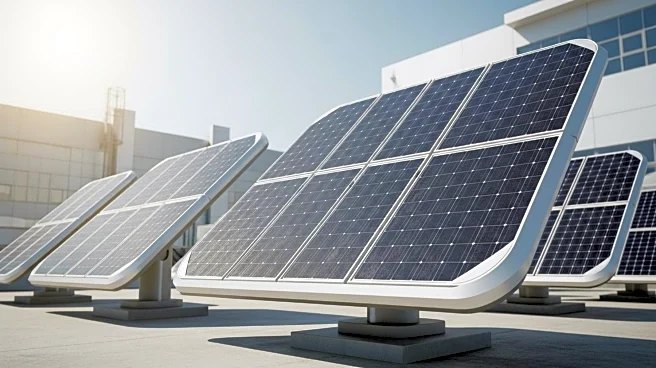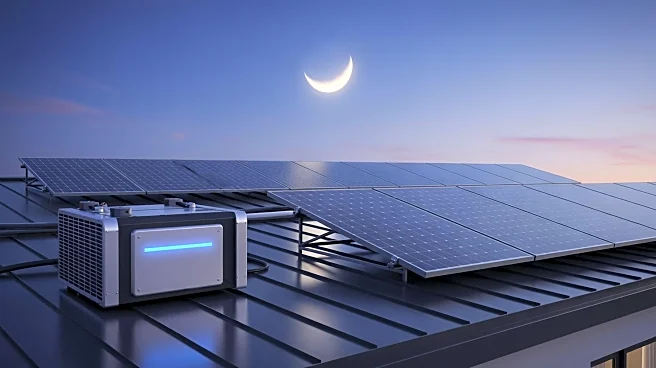What's Happening?
The European Solar Manufacturing Council (ESMC) has reported that EU-27 energy and industry ministers, along with European Commission Vice-President Stéphane Séjourné, have emphasized the strategic importance of solar PV manufacturing for Europe's competitiveness and clean energy transition. During a session on September 30, 2025, the ministers discussed the need to strengthen the solar PV value chain and maintain production capacity within Europe. Christopher Podewils, Secretary General of ESMC, noted the strong commitment to solar PV manufacturing, particularly the support for a Made in Europe label in public tenders. The session was followed by the ESIA Annual Meeting, where policymakers, manufacturers, and financial experts discussed strategies to translate ambition into action. Eike Klapper from the European Commission confirmed plans to provide operational support (OPEX) for clean-tech manufacturing through the new Competitiveness Fund, linked to existing instruments like the Innovation Fund.
Why It's Important?
The push for enhanced solar PV manufacturing support in Europe is crucial for the continent's energy independence and sustainability goals. By strengthening the solar PV value chain, Europe aims to boost its competitiveness in the global clean energy market and reduce reliance on external sources. The proposed operational support, including production support and tax credits, could incentivize manufacturers to invest in solar PV technologies, fostering innovation and job creation. This initiative aligns with broader EU objectives to transition to a low-carbon economy and meet climate targets. The commitment from EU ministers and the European Commission highlights the political will to drive the clean energy transition, potentially setting a precedent for other regions to follow.
What's Next?
The next steps involve translating political commitments into concrete actions to support solar PV manufacturing across Europe. Immediate assistance is needed for European manufacturers to capitalize on the political will and industrial expertise available. The implementation of OPEX support through the Competitiveness Fund and other instruments will be critical in providing the necessary financial backing for clean-tech manufacturing. Stakeholders, including policymakers, manufacturers, and financial experts, will continue to collaborate to ensure the effective deployment of these measures. The success of this initiative could influence future policy decisions and investments in renewable energy technologies.
Beyond the Headlines
The emphasis on solar PV manufacturing in Europe reflects a broader shift towards sustainable energy solutions and the need for regional self-sufficiency in energy production. This development could lead to long-term changes in the energy landscape, with increased focus on local manufacturing and innovation. The support for a Made in Europe label in public tenders underscores the importance of regional identity and quality assurance in the clean energy sector. Additionally, the collaboration between policymakers and industry leaders highlights the role of public-private partnerships in driving the clean energy transition.









